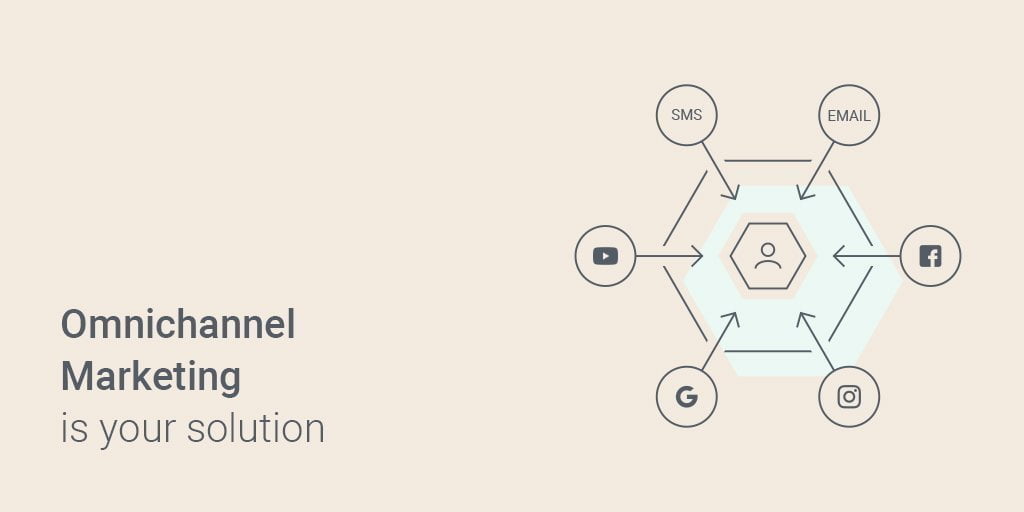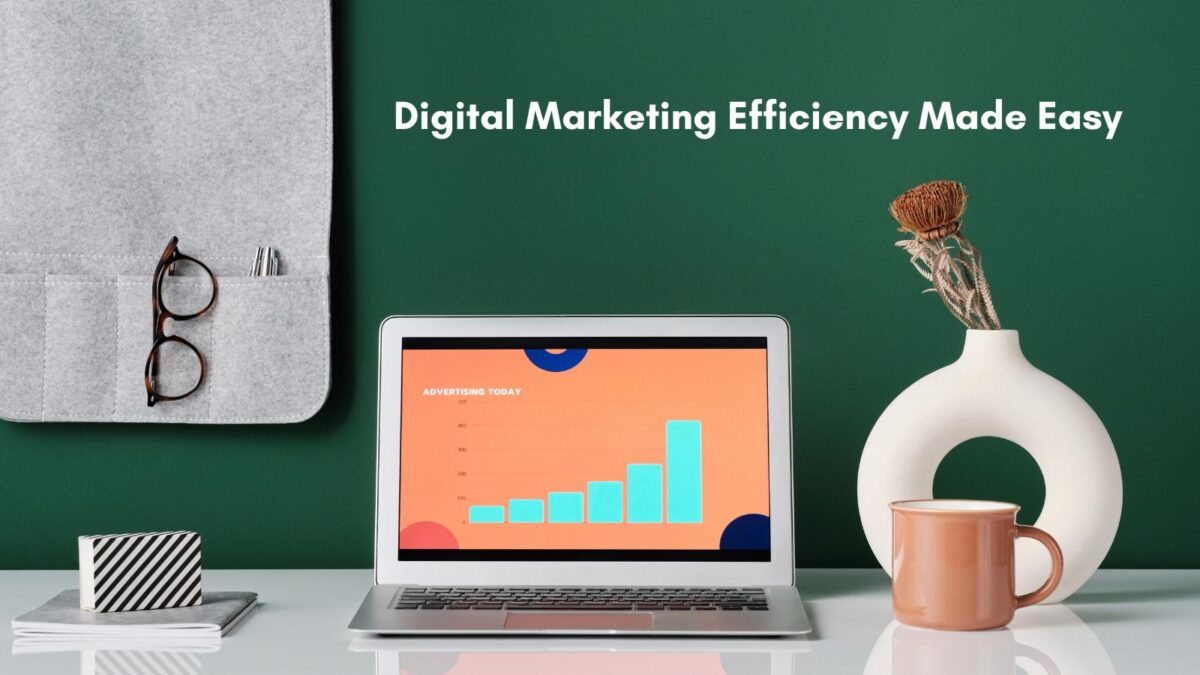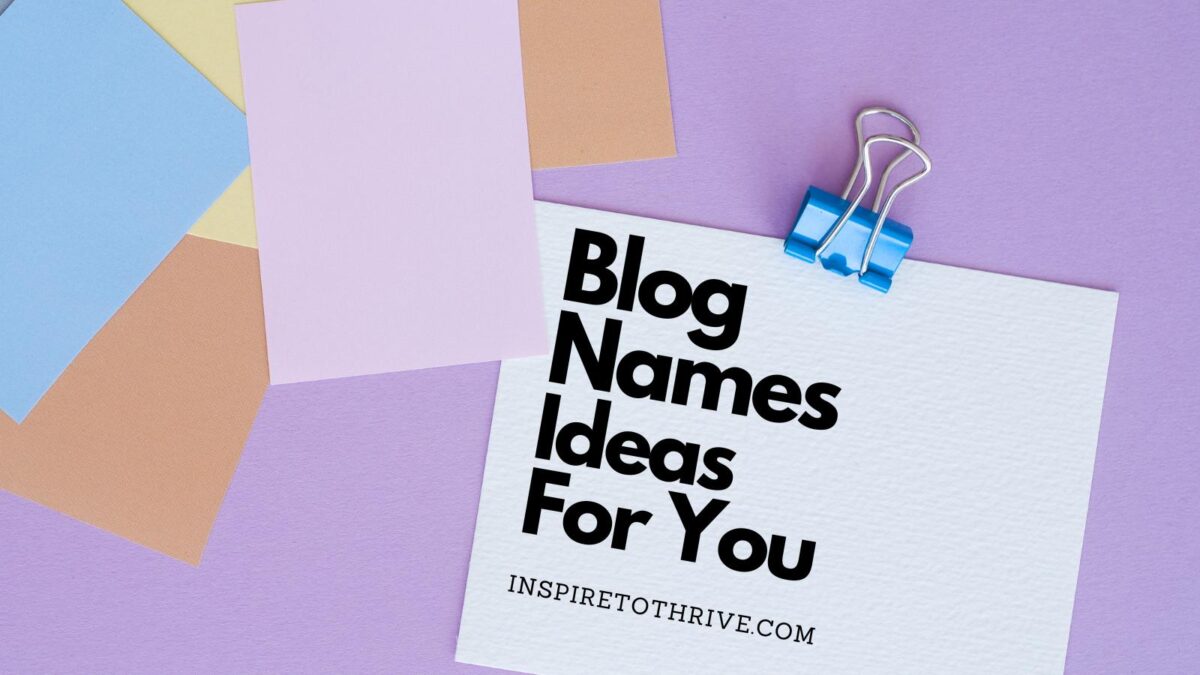Running an online store or business is a challenge already. Learn how an omnichannel marketing strategy can help you.
It covers so many different things from building the website to counting the margins and picking a nice design in between.

Marketing is also one of the most important aspects of your business. Without that, no-one would know about your store and it wouldn’t stay alive for long especially with the increase of competition on the web.
The marketing meaning, I’m speaking in this article of, is not about only customer acquisition. It is closely related to your customer experience and retention.
Did you know, that with increasing customer retention by just 5%, you can expect to increase profits by 25-95%? So the marketing strategy that fuels your customers’ retention turns on a green light for your long-life business.
The marketing challenges named below are only several of the whole bunch that you probably have. However, by solving them you will get the answers to many questions about your business.
Table of Contents
Challenge #1. Be Everywhere Where Your Customers Are
But your customers are all over the place, right?

That’s right. You can try to get them by using email marketing automation and it won’t be the worst case.
However, if you really want to get your brand at the top of your customer’s mind, you should use more than just an email marketing channel.
This is a limitation of generic email marketing tools like well-known Mailchimp or even the majority of MailChimp alternatives. The email service providers can only allow you to reach customers when they check their inboxes.
For reaching your customers everywhere, you will need more channels – social media, text messages, Google ads, etc.
The Salesforce in it’s annual “State of Marketing” report released that websites (83%), social media marketing (77%) and email marketing (75%) are currently being used by retailers the most.
In addition to that, there are emerging channels that grow exponentially. The following are video advertising (176%), SMS/text messaging (142%), mobile apps (135%) and native advertising / sponsored content (113%).
The retailers realize that a consistent customer experience all over the place is a necessity to stay competitive nowadays.
Challenge #2. Provide Your Customers With the Unified Experience
Perhaps, the challenge #1 hasn’t surprised you much. You’re already using social media and a lot of different channels to reach your audience.

Now let’s analyze the one very often situation that many customers get into every day.
Let’s say, you sell juicers and Sarah wants to buy one. She finds your store in Google search on her mobile phone on her way back home. She wants to read more before making a decision. So, she turns on her PC and carries on browsing here.
Her husband comes back home late. Without him there she doesn’t want to buy an expensive juicer so she is waiting for tomorrow.
Finally, the next day she buys from you the juicer. Meanwhile, you’ve re-targeted Sarah on Instagram and carry on showing her the ads for juicers.
What for? The juicer is bought already, your ads aren’t relevant anymore. So why do you still spend your money on that?
This is only one example from many cases that happens for retailers every day. With the unified omnichannel marketing strategy approach, this wouldn’t happen.
It Could Be Something Like This:
You organize the sale on your online store, so you send the text message to all your customers about that. Sarah gets the message, visits your store and chooses the juicer.
You show her a Facebook ad until she finally makes the decision and buys it. The moment she buys the juicer, you send her an order confirmation email and stop showing her the juicer ads.
It would be smooth and seamless communication with your customer. Numbers show, that 86% of customers are willing to pay up to 25% more for products and services just to have a better customer experience.
So the efforts to provide your clients with an excellent shopping experience would turn to better sales and bigger profit.
So be honest with yourself, how many different apps and service providers you use for your marketing? Maybe it’s time to switch from multichannel to omnichannel marketing strategy and coordinate everything from one place?
Omnichannel Marketing Definition
Simply put, the omnichannel marketing definition is: A way for your brand to reach your customers with a unified message through every channel they use.
Comparing omnichannel with multichannel marketing ideas, it’s “same-same but different”.
With multichannel marketing, you can reach your customers via different channels.
It also ensures that the customer’s experience is consistent and unified.
An Explanation of Omnichannel Marketing
If you use multichannel marketing, you reach your customers via emails, social media posts, push notifications, retargeting ads, etc.
But if the customer responds to one channel, do the other channels automatically change their offering? Sure, you can do it manually. Is it efficient? You will spend hours on making the adjustments. Especially when you have a large number of customers.
Instead of all that work, all your channels could be integrated using one platform. This would allow data to quickly be shared throughout your marketing tool.
So when your customer responds to your ad, his/her action determines what the next channels will do: What message will be shown via the push notifications, what the popup will say. And even after ordering, what the email or text message will be.
The multichannel marketing approach is fine at the beginning of your business. It is when you have very few customers and you know them by heart. Then you focus on the new customer acquisition and making the first sales.
In the later stages, the business focus moves on its sustainability and customer retention. The smooth and seamless customer experience becomes crucial.
Therefore, this is the moment when you need to switch your marketing to the omnichannel marketing strategy.

5 Key Benefits of An Omnichannel Marketing Strategy to Take Away
- You can reach your customer at the right time, with the right message, on the right channel. So your communication is consistent, doesn’t mislead or repeat.
- Your customers tend to pay more for an excellent experience.
- The great shopping experience encourages the brand loyalty.
- It’s easier to see the whole picture of your customers when all the data is on one platform. You don’t need to move it among tools every time you want to launch a campaign or do the business analysis.
- Using one tool instead of many is the most cost-effective way to do your marketing. Today AI is the most sought after tool for digital and social media marketing. (according to the above Salesforce report.)
All in all, omnichannel marketing will help your business grow from a good to a powerful, sustainable, and sales-driven business.
It’s the strategy big players, like Amazon, use. It’s the marketing strategy you can start using now to become one of them.
Conclusion: Omnichannel Marketing Strategy to Win
You fix the biggest pain fast when your Omnichannel marketing strategy ties every channel to one clear story, so people stop seeing mixed messages and start moving from discovery to purchase with less drop-off; audit your top 3 channels, align your offers and tone, and track the same core KPIs across each touchpoint.
- Instagram Story Captions: Boost Your IG Views In 2026 - December 26, 2025
- Best Private Instagram Viewer Apps in 2026 (Tested & Ranked) - December 24, 2025
- 3 Big Reasons The Most Read Blogs Keep Readers Coming Back (In 2026) - December 23, 2025




Hi Lisa,
I love this post! Omnichannel marketing is a multi-channel sales strategy that provides your customer with an integrated shopping experience–where he/she can seamlessly access and buy from you without any hassle. You have the opportunity to reach your customers where they at. You aim at where they at and that the beauty of the business.
Hi Moss, Thank you. Yes, it seems this is the way to go today. It will also help with your brand recognition and growing your own brand.I’m working on that now on all of my channels. Thank you for taking the time to comment on this one and have a great day Moss.
You’re right on here Lisa. Great points. Today’s customer wants and even expects seamless and integrated customer service. And they deserve it, no one likes being bombarded with ads for something they just bought. It’s frustrating and doesn’t invite a good buying experience.
Have a great day.
Thank you Amanda. Yes, I find that often after I purchase something online. I get bombarded by more offers for stuff I don’t want. That can get annoying for sure! Thanks for coming by Amanda and I hope you have a great day ahead there. Stay warm!
Being everywhere your customers are is such simple, powerful and business growing advice Lisa. Some folks seem to hang in spots where their customers would never be. Seems weird to me. But if you are helping people through various channels, eyes on targeting with aligned content and hashtags, hanging in niche specific groups, you will grow your business. Super post.
Hi Ryan, Thank you. Yes, why spend time in places where the folks are not part of your niche group? That does sound odd but maybe they want to cast a wide net. Not always wise but many do try that. Thanks for coming by on this Ryan and have a wonderful day ahead.